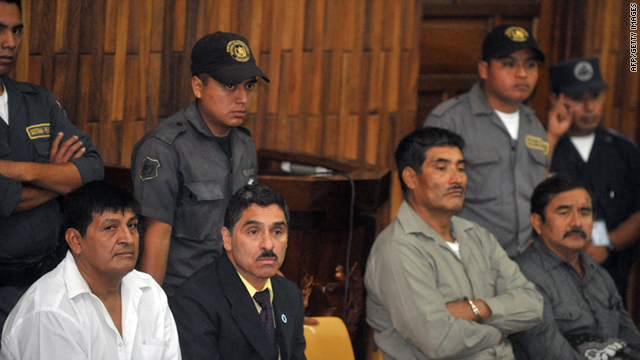By Brianne Yantz
Impunity Watch Reporter, North America
CHICAGO, United States – Two American citizens can sue former Defense Secretary Donald Rumsfeld for torture, the Seventh Circuit Court ruled on Monday. The two men pursuing the lawsuit, Donald Vance and Nathan Ertel, allege that U.S. Forces tortured them for months after suspicions of illegal activity arose against their employer, a private Iraqi company called Shield Group Security.

Court records revealed that in 2005 Vance and Ertel had begun to suspect that their employer was bribing Iraqi officials and that some employees were engaging in illegal weapons trafficking. Shortly thereafter the two men became FBI informants. In April of 2006, however, Shield Group Security confiscated their credentials and they were left trapped in the Red Zone of war-ravaged Iraq.
After calling their government contacts, Vance and Ertel were assured that U.S. Forces would rescue them. Instead, the two men were arrested and thrown in confinement. According the Herald Sun, the two allege that while detained they were subjected “to violence, sleep deprivation and extremes in light and sound.”
It was further reported by the Chicagoist that the two men were “often deprived of food and water, walled, denied medical care and subject to various forms of psychological torture.”
Vance and Ertel were eventually released; the two men were dropped off at an airport in Baghdad. They were never charged or designated as security risks. They later decided to sue Rumsfeld as well as other unnamed U.S. officials.
Immediately Rumsfeld sought to dismiss the case, arguing he “had immunity for actions taken while working as defense secretary, and that U.S. citizens [could not] sue for violations of their rights that occurred in war zone,” BBC News reported.
However, according to BBC News, the Seventh Circuit reasoned Rumsfeld did not have immunity because the “plaintiffs [had] alleged sufficient facts to show that Secretary Rumsfeld personally established the relevant policies that caused the alleged violations of their constitutional rights during detention.”
The Seventh Circuit’s 2-1 decision affirmed the ruling of the lower district court, which also found that Rumsfeld lacked immunity.
In an interview quoted by the Herald Sun, Vance’s lawyer, Michael Kanovitz, said of the Court’s decision, “it’s important because what the court does here is it affirms the very basis of constitutional doctrine.” He further commented that absolute discretion should not be given to the executive branch.
Meanwhile, Rumsfeld’s lawyer, David Rivkin, quickly denounced the ruling, arguing “it saps the effectiveness of the military, puts American soldiers at risk, and shackles federal officials who have a constitutional duty to protect America,” Courthouse News Service reported.
Although whether Rumsfeld will be found accountable remains to be seen, the Seventh Circuit’s decision comes a week after a district judge in Washington ruled that a former American military contractor, who also alleges he was tortured in Iraq, could sue the former defense secretary.
For more information, please see:
Chicagoist – Court Rules Citizens Allowed to Sue Rumsfeld for Torture – August 10, 2011
Courthouse News Service – U.S. Citizens Can Sue Rumsfeld for Torture – August 9, 2011
Herald Sun – Donald Rumsfeld can be held liable for alleged torture, court rules – August 9, 2011
Wall Street Journal – Donald Rumsfeld Faces Another Torture Lawsuit – August 9, 2011
BBC News – ‘Tortured’ US citizens allowed to sue Donald Rumsfeld – August 8, 2011



